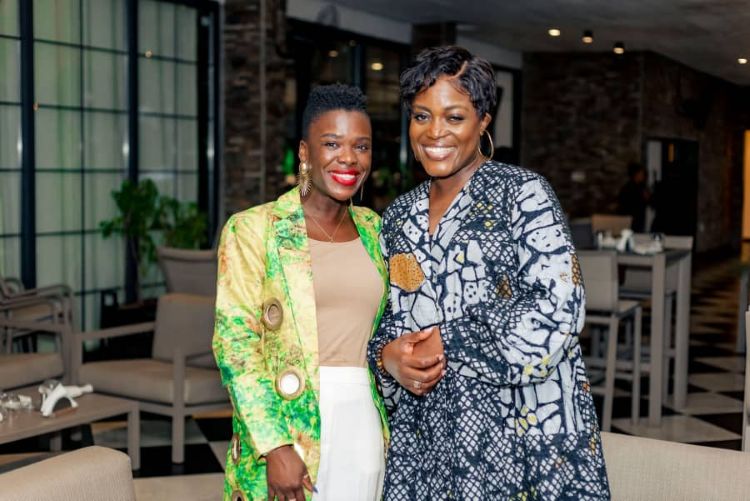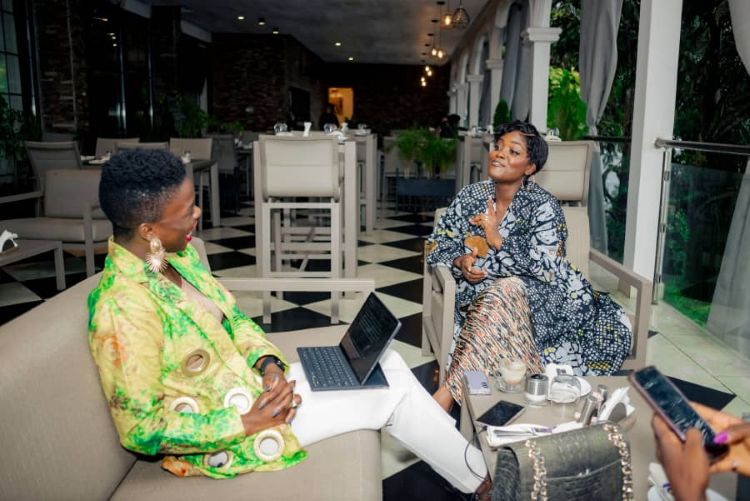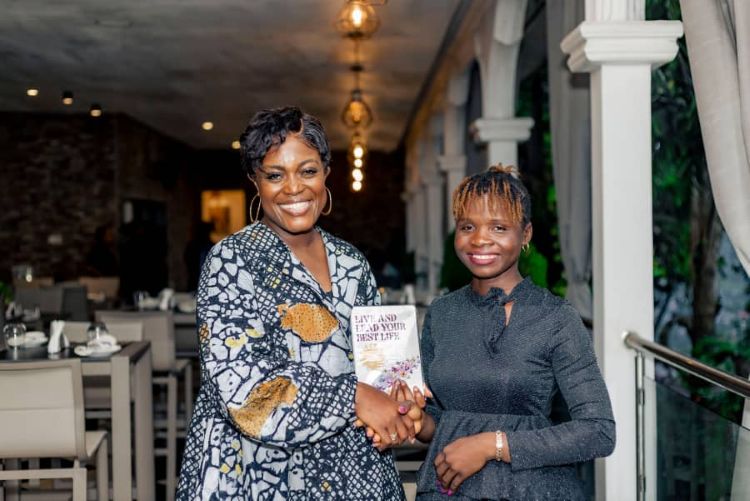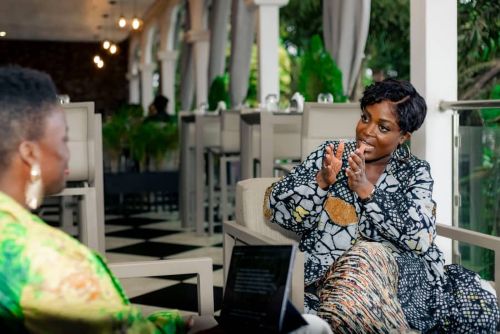MEET ARIANA
Dr. Adaeze Oreh’s Visit to Sierra Leone: Championing Women’s Health and Public Health Innovation in Africa
July 30, 2025
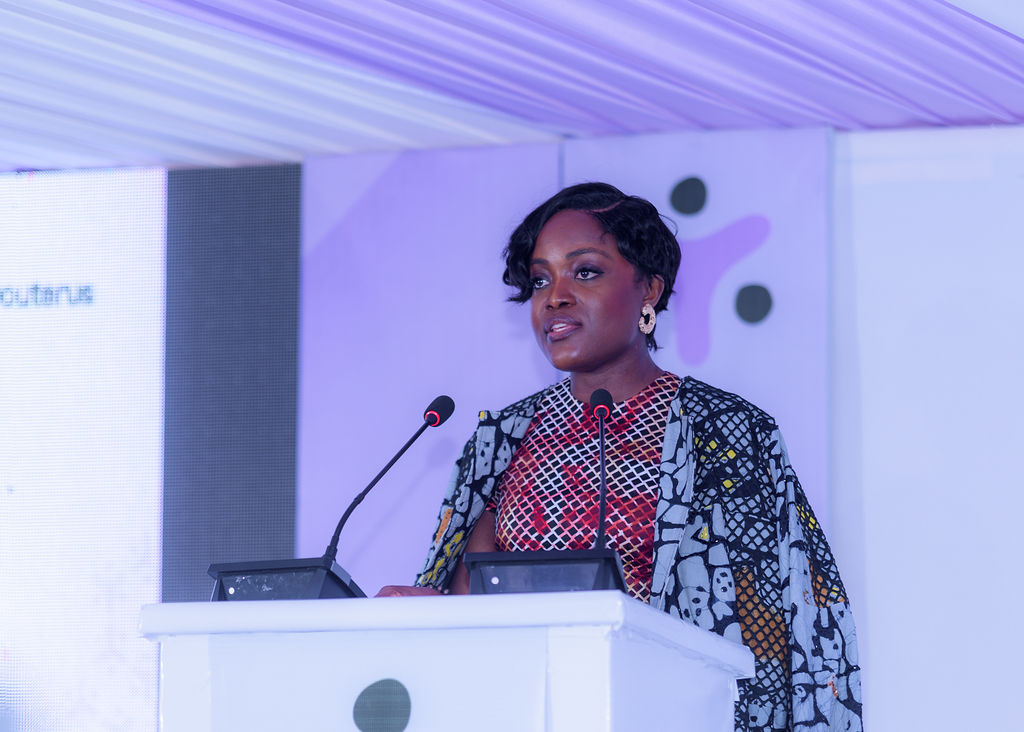
It was the kind of Freetown morning that slows your heartbeat, surprisingly clear skies stretching endlessly over the Atlantic, and a breeze that whispered of new beginnings. On July 25th, 2025, at the New Brookfield Hotel, a quietly historic moment unfolded. Sierra Leone’s First Lady, Dr. Fatima Maada Bio, launched the Uterine Health Fund (UHF). The first financing mechanism of its kind in Africa, created to directly confront the uterine health issues affecting millions of women across the continent.
But for those who truly listened, the day carried a deeper message: African women’s health can no longer be a footnote. It must be the headline.
And seated among the change-makers, with grace in her eyes and resolve in her heart, was one woman who embodied that message: Dr. Adaeze Oreh, 27th Commissioner for Health in Rivers State, Nigeria. Her presence was far more than ceremonial. It was personal. It was purposeful.
A Meeting in the Mountains
We sat down for a conversation on the evening of the launch, at Country Lodge, perched high above Freetown and wrapped in a cradle of green hills. The sea glistened below us, but all I noticed was her: sipping cappuccino, exuding calm, her voice as rich as the earth.
We began, naturally, with the familiar; the stories we share as Africans. The invisible threads of ancestry, the tug of identity, the power of our environment to shape who we become.
“I feel like I’ve known her forever,” I thought. That is what speaking to Dr. Oreh feels like less like an interview, more like catching up with an old friend who just happens to be redefining public health systems across a continent.
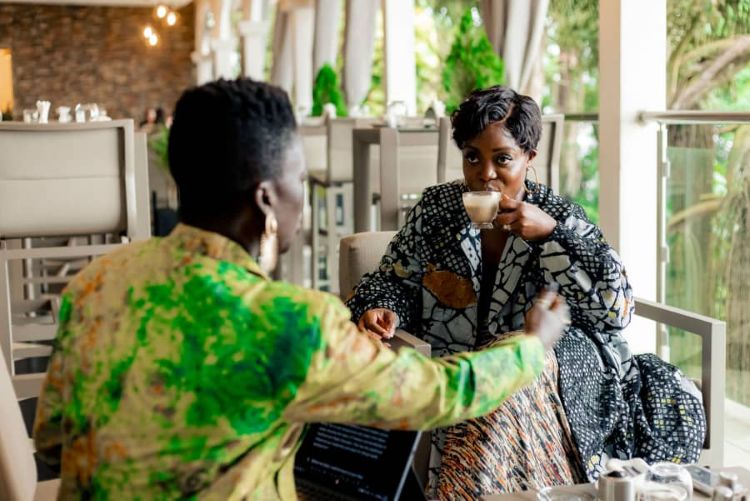 The Path to Purpose
The Path to Purpose
Dr. Oreh’s journey into medicine was not influenced by pressure or expectation it was a conscious decision, born from empathy.
“Law fascinated me,” she said. “But medicine allowed me to care with my hands. It gave me proximity to people’s pain, and the chance to do something about it.”
She recalled the story of a security guard whose child needed a simple $10 eye surgery: an amount that equalled his monthly salary. “He broke down in tears. That moment never left me,” she said. “It taught me: healthcare isn’t a luxury. It is the difference between dignity and despair.”
Her philosophy is clear: healthcare must be treated as a public good, not a privilege. It is not just about saving lives, she explained, but about enabling economic productivity and long-term national development. “We cannot have a productive workforce that spends its days queuing at hospitals or trying to crowdfund treatment.”
This is why the Uterine Health Fund matters. And why Dr. Oreh’s voice in that room mattered even more.
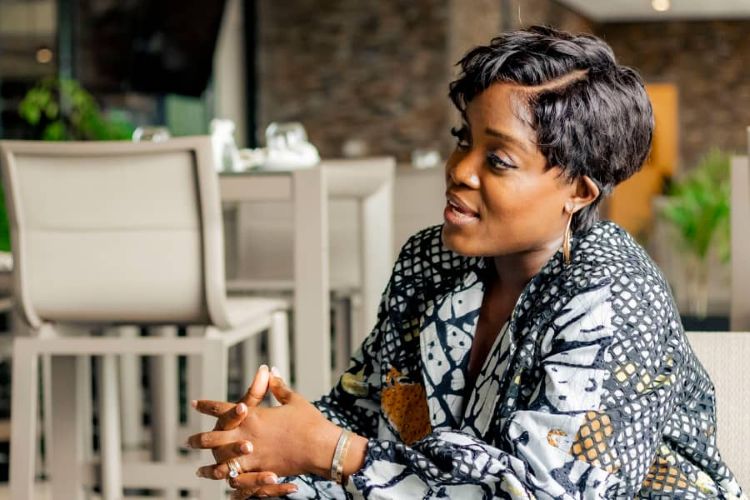 Public Health is Nation-Building
Public Health is Nation-Building
We delved into her vision for public health in Africa: not just reactive services, but resilient systems. For her, real progress will come when countries treat public health as infrastructure-like roads, energy, or education.
“We need to get to the point where our health systems are integrated, accountable, and built with our people in mind,” she said. “The model has to be pro-poor, pro-community, and pro-results.”
She dreams of a continent where every woman can access care without selling her inheritance, and where health workers are not just responders, but respected system-builders.
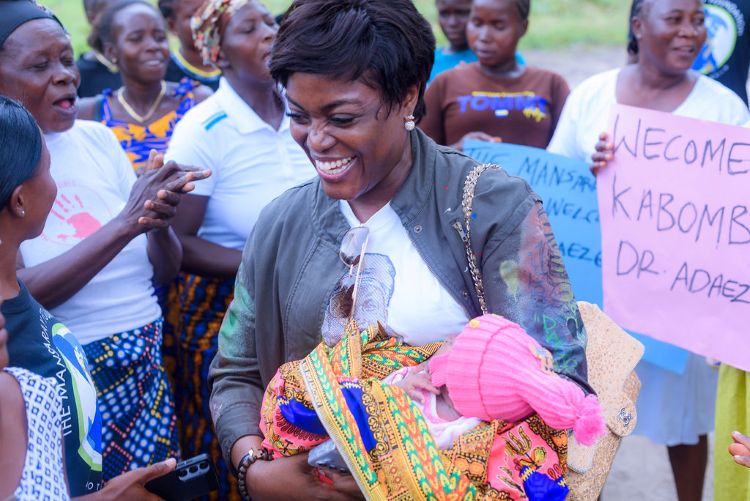 The Mansaray Foundation: A Visit That Touched Her Spirit
The Mansaray Foundation: A Visit That Touched Her Spirit
It was this shared vision of community-rooted care that drew her to The Mansaray Foundation, a Sierra Leonean non-profit founded by Saibatu Mansaray, a dynamic advocate for rural maternal and child health. The foundation focuses on expanding access to maternal services in under-resourced regions, particularly in northern Sierra Leone.
Dr. Oreh’s involvement with the foundation started a few years ago, when Saibatu: impressed by her work. She invited her to join the advisory board.
“She reached out to me on LinkedIn,” Dr. Oreh smiled. “At the time, I was navigating new responsibilities, but her passion was undeniable. I did not want to disappoint her.”
During this trip, she finally visited the community in Makeni and other districts where the Foundation operates. What she experienced moved her deeply.
“They were waiting for me with placards bearing my name, singing songs of welcome. I was overwhelmed,” she said, her voice catching. “It reminded me: we are one people. Our stories may have different backdrops, but our dreams are the same.”
She left Makeni not just impressed: but emotionally invested. “They’ll have a hard time getting rid of me now,” she laughed. “I’m in.”
The Amujae Sisterhood: “Being Seen is Next-Level”
We shifted to the subject of leadership and she lit up when I mentioned Amujae: the flagship initiative of the Ellen Johnson Sirleaf Presidential Center for Women and Development.
In 2021, Dr. Oreh became an Amujae Leader, joining a cohort of African women handpicked for their potential to shape national destinies. The name “Amujae” comes from a Kru word meaning “we are going up,” and that’s exactly what they’re doing.
“Our first retreat was powerful,” she said. “Hearing from other women: deputy ministers, CEOs, civil society advocates – all battling the same storms but still standing tall… it was healing. You see them and you think, ‘If they can rise, so can I.’”
For her, Amujae is not just about network-building. It is about sanctuary. “It is a safe space. No judgment. Just truth. That kind of sisterhood is rare and it’s necessary.”
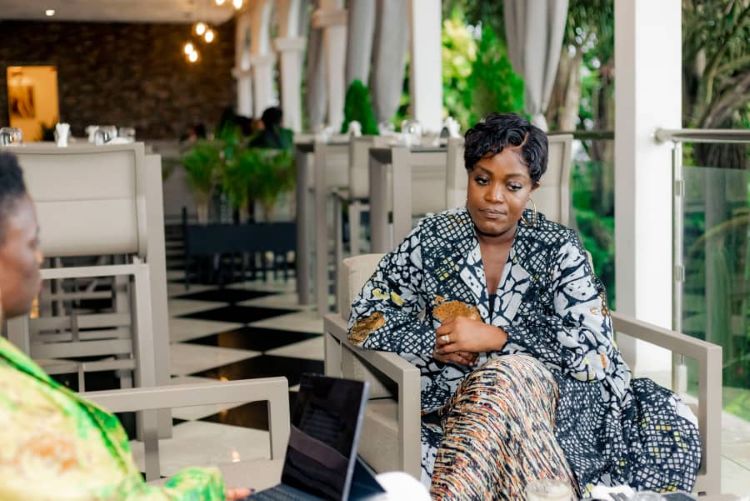 Mentorship, Medicine, and the African Way
Mentorship, Medicine, and the African Way
Dr. Oreh believes the future of African healthcare lies in African solutions including traditional medicine, often discarded in favour of imported systems.
She’s not nostalgic: she’s strategic. “Orthodox medicine came from the Global North. But many of those compounds have roots here: in our soil, our forests, our heritage,” she said. “We need to regulate, research, and elevate our traditional practices: not erase them.”
Earlier this year, she inaugurated a ministerial board to formalize and integrate traditional healers into structured healthcare. “COVID-19 taught us the hard way. No one is coming to save us. Africa must invest in its own resilience.”
And central to that vision? Mentorship. Real, hands-on, walk-with-me mentorship. She wants to see young African professionals leading their own health institutions, shaping their own health policies, and blending innovation with tradition.
To the Young Woman Reading This
I asked her what she would say to young women trying to make sense of their journey: especially those who feel weighed down by their past.
“I see them,” she said, firmly. “Being a teenage mom doesn’t mean you’re lesser. Having fibroids, or cancer, or no access: none of that defines you. It is just a part of your story.”
She paused, her eyes soft but unflinching. “I have had fibroids. I have had cancer. But I didn’t wear those things like a head tie.”
Her voice grew stronger. “Look at Sarah Jakes Roberts. Pregnant at 14. Now she is a powerhouse. So, to every girl out there: your pain is part of your power. Push through.”
One Continent, One Cause
Dr. Adaeze Oreh did not come to Sierra Leone for a photo-op. She came to connect, to learn, to lend her voice, and to grow her already impressive legacy of African health reform.
In the echo of her footsteps at New Brookfield Hotel, and in the songs sung by Makeni women, something shifted. A seed was planted. A new kind of leadership: honest, empathetic, deeply grounded is taking root across our continent.
And perhaps, just perhaps, the next girl who hears about her story will think: “If she can shine through the chaos, then maybe I can too.”
Because in the end, Dr. Oreh’s visit was not just a visit. It was a kind of homecoming: for her, for Sierra Leone, and for the dream of a healthier, united Africa.
